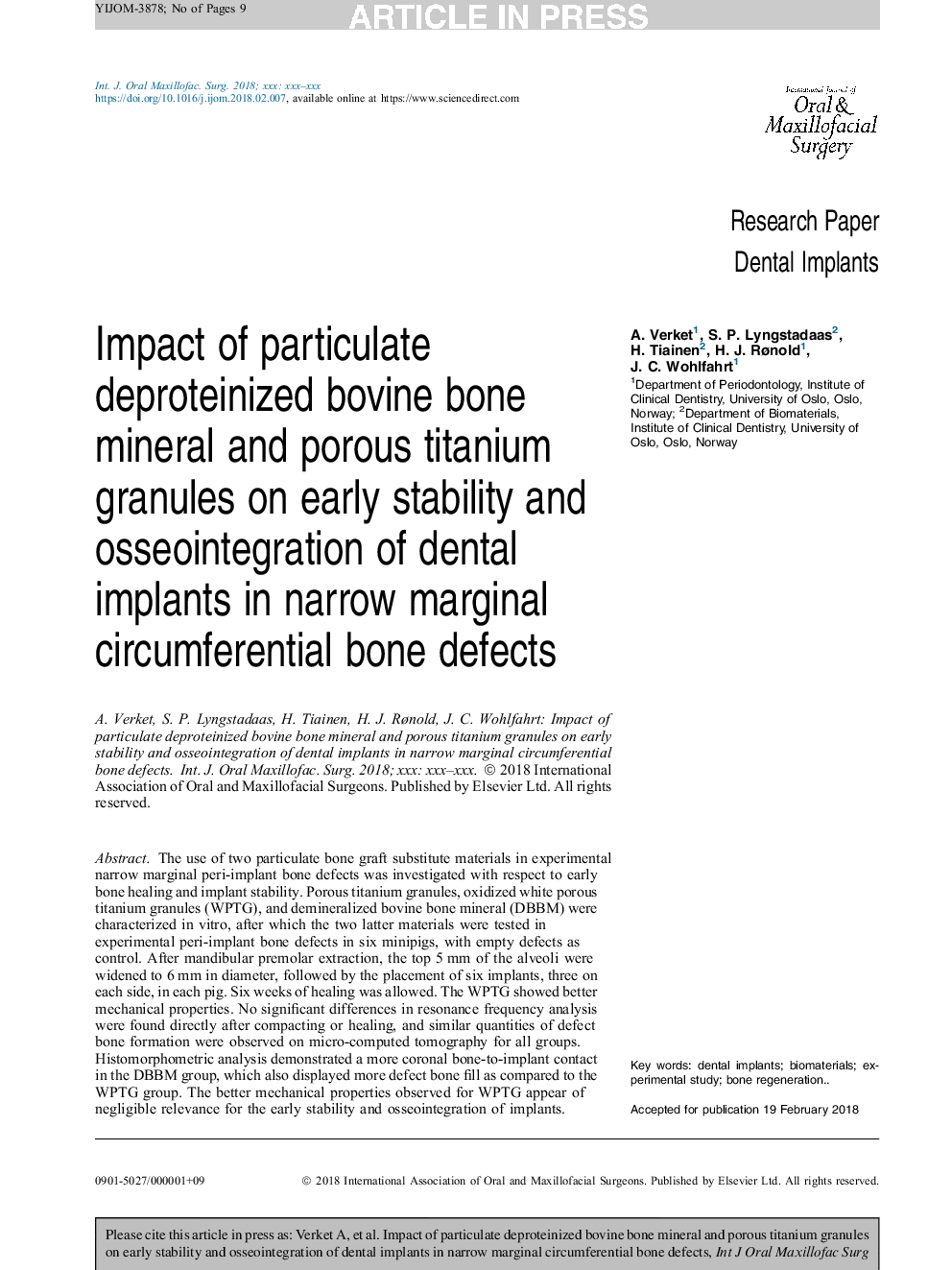| Article ID | Journal | Published Year | Pages | File Type |
|---|---|---|---|---|
| 8697773 | International Journal of Oral and Maxillofacial Surgery | 2018 | 9 Pages |
Abstract
The use of two particulate bone graft substitute materials in experimental narrow marginal peri-implant bone defects was investigated with respect to early bone healing and implant stability. Porous titanium granules, oxidized white porous titanium granules (WPTG), and demineralized bovine bone mineral (DBBM) were characterized in vitro, after which the two latter materials were tested in experimental peri-implant bone defects in six minipigs, with empty defects as control. After mandibular premolar extraction, the top 5Â mm of the alveoli were widened to 6Â mm in diameter, followed by the placement of six implants, three on each side, in each pig. Six weeks of healing was allowed. The WPTG showed better mechanical properties. No significant differences in resonance frequency analysis were found directly after compacting or healing, and similar quantities of defect bone formation were observed on micro-computed tomography for all groups. Histomorphometric analysis demonstrated a more coronal bone-to-implant contact in the DBBM group, which also displayed more defect bone fill as compared to the WPTG group. The better mechanical properties observed for WPTG appear of negligible relevance for the early stability and osseointegration of implants.
Related Topics
Health Sciences
Medicine and Dentistry
Dentistry, Oral Surgery and Medicine
Authors
A. Verket, S.P. Lyngstadaas, H. Tiainen, H.J. Rønold, J.C. Wohlfahrt,
